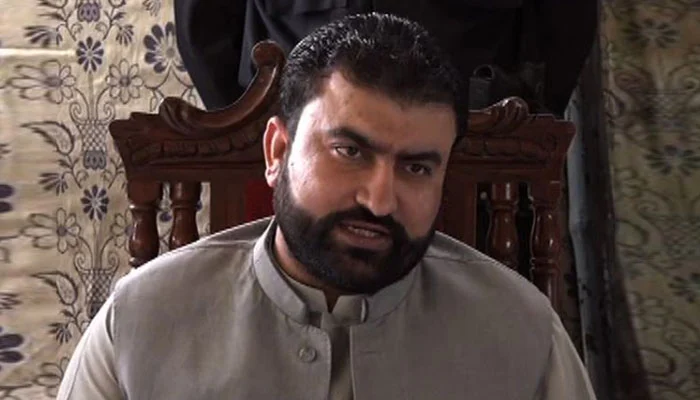Maulana Fazlur Rahman, head of the Jamiat Ulema Islam (F) (JUI-F), recently called for general elections in Pakistan, citing the need for political stability. Speaking to the media in Chiniot, Maulana Fazlur Rahman emphasized his opposition stance and stated that he has no intention of joining the government, but instead wishes to see an electoral process that can restore stability to the country. His statements come amid ongoing debates on the role of various institutions in ensuring Pakistan’s political and social equilibrium, especially as different factions push for their own vision of the country’s future.
A Call for Political Stability
Maulana Fazlur Rahman underscored the importance of political stability in Pakistan, emphasizing that a strong and stable government is essential for the country to overcome its numerous challenges. “Political stability is crucial for Pakistan’s future,” he stated. His comments reflect the sentiments of a significant segment of the population that sees the current political environment as strained and uncertain. Rahman’s focus on elections as a tool to restore stability aligns with the belief that only a fresh mandate from the people can address the current political turmoil and restore confidence in the leadership.
A History of Peaceful Protests
Reflecting on his own political approach, Maulana Fazlur Rahman highlighted that his party has always conducted peaceful protests. He pointed out that during the many “million marches” led by the JUI-F, “not a single pot was broken.” This statement appears to contrast his party’s actions with other political movements in Pakistan that have sometimes led to violence or damage to public property. His words convey a message of restraint and responsibility, signaling that his political advocacy seeks change through peaceful means rather than disruption.
The Role of the Opposition
Maulana Fazlur Rahman clarified that he remains firmly in opposition, with no intentions of joining the government. His assertion emphasizes his commitment to serving as a critical voice rather than pursuing power for its own sake. For him, remaining in opposition allows him to act as a check on the ruling party, pushing for electoral reform and policy changes without compromising his values or principles. By demanding general elections, he argues for a democratic process that is open, fair, and reflective of the public’s will, positioning himself as a key advocate for democracy and accountability in Pakistan.
Criticism of the Judiciary’s Independence
In an interesting juxtaposition, Maulana Fazlur Rahman’s demand for elections comes amid a separate controversy involving Chief Justice Qazi Faez Isa. Justice Syed Mansoor Ali Shah recently criticized Chief Justice Isa, alleging that he has opened the judiciary to interference, comparing him to an “ostrich with his head in the sand.” Justice Shah’s comments have sparked intense debate regarding the independence of Pakistan’s judiciary and the influence of external forces on its decision-making. Although unrelated to Rahman’s call for elections, the issue of judicial independence is highly relevant in the context of Pakistan’s political stability, as it impacts public confidence in the rule of law and governance.
Maulana Fazlur Rahman’s Position on Chief Justice Qazi Faez Isa
Maulana Fazlur Rahman also expressed his views regarding the judiciary, specifically Chief Justice Qazi Faez Isa. He highlighted that stability in the country is not only a political matter but one that requires a harmonious and independent judiciary. Rahman’s remarks suggest that he views the judiciary’s role as essential to maintaining a balanced governance system, one where all branches of government work independently yet cooperatively for the welfare of the nation.
While Rahman did not directly address Justice Mansoor’s recent criticisms, his emphasis on stability implies his support for a judiciary that operates free from external influence, a sentiment that aligns with the general public’s desire for fairness and transparency in the justice system. The Chief Justice’s role in ensuring that the judiciary remains impartial is especially critical at a time when Pakistan faces pressing issues that require clear and consistent interpretation of laws.
The Path Forward: Maulana Fazlur Rahman’s Vision
Maulana Fazlur Rahman’s demand for general elections highlights his belief in democracy as the pathway to a more stable and prosperous Pakistan. His call for elections stems from a desire to give citizens a renewed opportunity to choose their leaders, particularly in the face of an evolving political landscape marked by competing interests. In calling for general elections, Rahman is not only advocating for his party but for a system that ensures political legitimacy and accountability across the board.
According to him, a new electoral mandate can resolve many of Pakistan’s challenges, from economic difficulties to social issues, as elected representatives work with a renewed sense of purpose and legitimacy. In his vision, a stable political environment would enable Pakistan to better address both domestic and international challenges, ultimately benefitting its citizens.
Maulana Fazlur Rahman’s recent statements underscore the need for democratic processes that allow the people to choose their leaders freely. His call for general elections, coupled with his commitment to peaceful political advocacy, positions him as a significant voice for stability and democracy in Pakistan. Meanwhile, his comments on judicial independence echo broader concerns about the balance of power within Pakistan’s governance structure.
The current landscape, marked by calls for judicial accountability and political reform, signifies a period of reflection and potential transformation in Pakistan’s governance. As the country’s political players—including opposition leaders like Rahman and judicial figures like Justice Qazi Faez Isa—navigate these issues, Pakistan stands at a crossroads where the choices made today could shape its future. Maulana Fazlur Rahman’s demand for elections and his steadfast position in opposition emphasize his belief that a transparent, democratic process remains the ultimate solution to Pakistan’s challenges, calling for a return to the people’s mandate to chart the country’s path forward.



